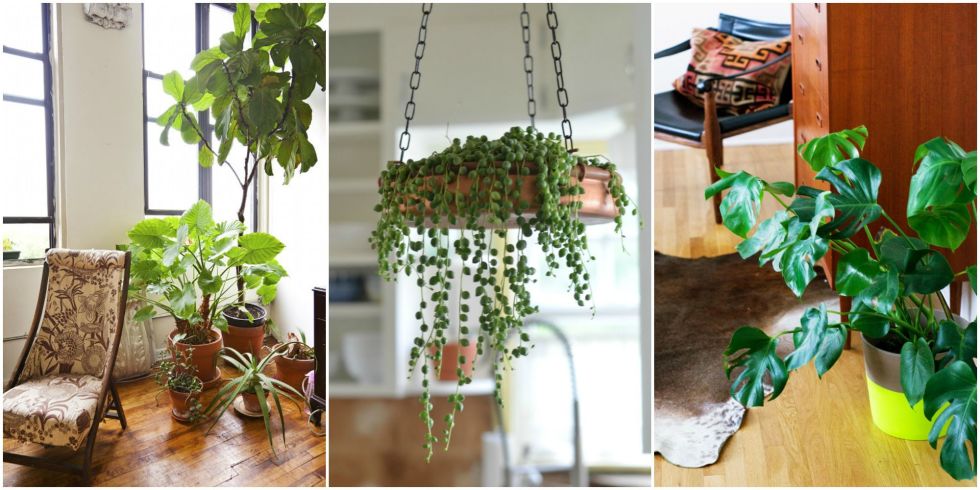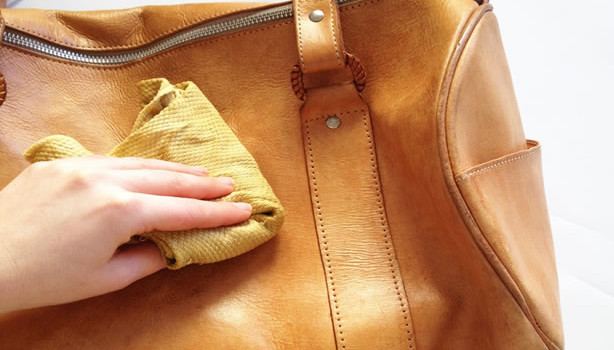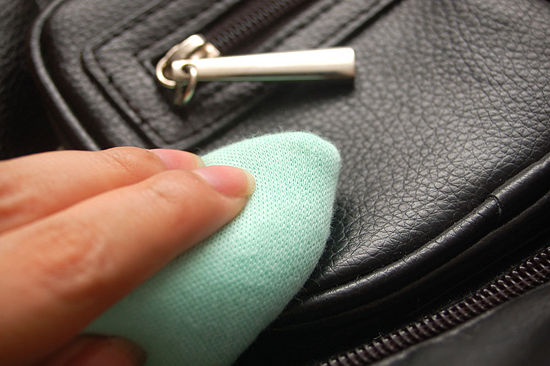
Many Singaporeans are having questions because of the extended downtime of some government websites on November. Infocomm Development Authority explained that the extension of the downtime...

Increasing Cyber Security
1
SingTel Declares iPhone 5S and...
2
MOH Warns to Limit Outdoor Act...
3Posted by Editor | 0 Comments
On Set Bedtime Routine: Grown-ups Should Also Observe It
Sleep is a very important aspect in one’s growth and development. It is your body’s way of recuperating and restoring the energy needed for the next day’s use therefore it should not be ignored no matter what. Many Singaporeans think that only kids need sleeping and so adults set a bedtime routine. Parents enforce a strict bedtime routine for the children.

When the night falls, children already know the drill – sleep at around 8 or 9PM, lights out and no gadgets. Children have no choice but to follow the set bedtime routine. Unfortunately, it is an entirely different scenario for adults. Adults think that they are above the routine – no set sleeping time and continuous scrolling on social media not to mention Netflix addiction and unplanned pub hopping.
When you are an adult, there are many things that you should do – work related or not, and before you know it, it is already 3AM. By this time, you are already panicking because you have work at 9AM. How much sleep will you get? Then you resort to frantically counting the sheep over your mind in the hopes that you will sleep soon. Sometimes you even curse yourself for getting distracted.
If this is a problem, you have to train yourself maintaining the same bedtime as well as waking time every day. It gives adults a good chance of accomplishing quality and revitalizing sleep. How can you set a bedtime routine? Well, you have to know the basics first.

For sure you heard about circadian rhythm (or often referred as body clock). This is the body’s natural cycle that efficiently regulate all physiological processes. Sleep is mainly controlled by circadian rhythm. There are four stages of your sleep cycle. Stages 1 and 2 are the lightest stage (you can easily be awaken), Stage 3 is deeper (you are now hard to wake) and Stage 4 is called Rapid Eye Movement where you dream. Fewer sleeping time will lead to sleep deprivation.
It is time that you know the benefits of set bedtime routine. For one it can improve emotional wellbeing plus it can enhance cognitive function. If you slept well, it can in fact have a positive impact on your relationships. When you lack sleep, notice that you are not your normal self because you tend to experience poor mood, low energy and surge irritability leading to poor performance or productivity.
Now, how will you set your bedtime routine? It is not like you are going to ask your parents to enforce it to you once again. You are a grown person so you have the power to change your life. The first thing that you can do is to set a night time alarm. It will let you know when your body will get ready for sleep.

Posted by Editor | 0 Comments
A Guide to Finding a Reliable Electrician
There’s really nothing wrong with DIY projects, except when it comes to your home’s electrical system. Handling electricity can be dangerous. Apart from the risk of getting electrocuted, the slightest wiring glitch can increase the risk of starting a fire. To ensure your and your family’s safety, hire a professional and reliable electrician services to take care of your electrical works.

1. License
Anyone can claim they are an electrician, but not all have the license to prove it. Obtaining a license takes time, proper training, and dedication. The license proves that an electrician takes his career seriously and will take the job given to them critically. An unlicensed electrician may come cheaper, but they are not bonded, insured, and certified. When looking for a professional to do your electrical works at home, ask to see a proof of their licensure.
2. Insurance
Professional electricians are required to have workers’ compensation coverage and liability insurance. It is important that an electrician servicing contractor in Singapore has liability insurance to serve as your protection in case of an accident that may happen while the job is going on. Another insurance-related matter to check is whether the electrician is bonded. This means you will be reimbursed for any damage or loss of property during the completion of the task. Hiring an electrician with no insurance will leave you and your properties at risk.
3. Experience
Another important thing to consider is an electrician’s experience. When looking for an electrician in Singapore, take the time to know more about their background. Ask to see evidence of previous—if possible most recent—jobs that are the same with the task you want them to do. This helps ensure that they have enough experience executing the type of work you require them to carry out. A trustworthy and reliable professional will be more than willing to inform you of their experience and will courteously address your concerns.
4. Specialization
Since electricians master different electrical jobs, it is important to look for one who specializes in the job you need for your home. For example, if you want to install a new fixture wiring or replace your old circuit box, don’t waste your effort—and money—hiring a commercial contractor that wires large buildings.
5. Warranty
A licensed and reputable electrician will stand by their work. Find out whether an electrician has a warranty that provides solution to remedy accidents or damage that may arise shortly after the job is completed. A good electrician ensures that their job is efficient and their client is satisfied with the work before signing off from a job.
6. Recommendations
Start with family, friends, and colleagues that have had electrical works done by an expert. Ask the people you know in your local area if they have a good contractor to recommend. Also, ask if they have dealt with the same electrical issues and who did they call to fix the problem. You can also stop by your local electrical supply and see if they can recommend a licensed electrician in your area.

7. Reviews
Aside from getting other people’s recommendations, look for reviews of a contractor online. Search a contractor online and read customer reviews to find out whether an electrician is both reliable and reputable. Read reviews and testimonials in their website, but most importantly, visit third party websites for honest and unbiased reviews.
8. Pricing
When searching for a reputable electrician in Singapore, consider several contractors and compare their prices. Extra cheap service fees is a red flag of an unreliable service and is often a sign that an electrician is not licensed and insured, while overly expensive pricing isn’t always the best choice to take. For this, make sure to do thorough research. Compare services, and see whether the price is reasonable for their qualifications.
9. Knowledge of Safety Codes
A legitimate electrician in Singapore has mastered the safety codes and procedures set by the government to ensure people’s safety. If you try to research the national safety code, you will know that it is not going to be a light read. A good electrician has fully understood and mastered these codes and is updated of the newest procedures set by the authority. Ensure the safety of your property by hiring only a knowledgeable and educated contractor.
10. Accurate and Detail-Oriented
Because of highly-technical nature of electrical works, an electrician should never take second guesses when dealing with electrical scenarios. A professional should be fully aware that accuracy is a critical factor in the job, because their lives and their customer’s safety are at stake when they commit errors.
11. Reliable and Congenial
A seasoned electrician services provider knows very much that a professional ethic and amiable attitude will gain him more customers. A professional electrician also knows that earning good reputation is also about building friendly relationship with their clients. Since they work with different types of people, the ability to deal with different personalities is an important aspect of a good electrician.
Electricity problems cannot always be anticipated. That’s why it’s always recommended to know an expert before you even experience complex troubles with your electrical system.
Choosing a licensed professional also means that you are ensuring your property’s safety. If you want to protect your property and ensure your and your family’s safety, as well as the safety of all the people residing in your property, every point stated above is essential to your success.

Posted by Editor | 0 Comments
Diet During Cancer Treatment
Treatments for breast cancer, such as radiotherapy and chemotherapy, can cause a range of side effects, and some of which can affect your appetite. You may not have the desire to eat, but it’s critical to have enough calories and nutrients in your body to reduce treatment problems, boost immune system and help minimize weakening side effects such as fatigue. If you have not yet gone for one, we recommend a cancer check with Harley Street oncologist in Singapore to ensure that all is clear. Here are some important points to keep in mind that will help manage the side effects of your treatment better.

Diet after Surgery
Most cancer patients in Singapore reported that they feel ready to eat again after their surgery, and notice that their appetite increases each day. To gain back the energy and promote healing of tissues, try to balance a healthy diet with foods you enjoy eating. Think of easy-to-eat foods that your body can manage to digest without much effort. A bowl of cereal with your choice of fresh fruits is quick and healthy and can contain one-third of your vitamin requirement for the day.
Even if your appetite is low, try not to miss a meal and get into a pattern of eating. Even if your meal is just avocados on toast, it will still provide energy and get you eating on time.
Side Effects of Chemotherapy
The side effects of chemotherapy vary from patient to patient. Some may not experience change in appetite, while others may experience a change in their desire to eat, although it’s very common to find your appetite fluctuating during the entire cycle of the treatment.
Changes in Appetite
Here are some tips to help you manage your unstable appetite:
• Have six small meals a day instead of three big meals
• Drink smoothies, fresh fruit juice or milkshakes if you don’t feel like taking solid food
• Avoid drinking liquids before and during meals as this decreases your appetite
• Do something active, such as a short walk, before a meal to increase your appetite.
There are also some cancer patients in Singapore who find themselves eating more due to the drugs given during the treatment.
• Go for low-fat drinks and foods
• Eat more fresh fruits and vegetables, instead of meat
• Be aware of the sugar content of “diet” foods.
Feeling Nauseous
Taking anti-sickness medicine can help ease nausea and vomiting. If you feel nauseous every after treatment, bring this up to your oncology team to find a suitable prescription drug for you.
However, as much as possible, try to manage your nausea the natural way. Drink water more frequently; it’s much better to drink in small sips than drinking large amounts in one go. For the food, go for small, frequent meals rather than large meals at once. If you still feel nauseous, ask your specialist if you can take herbal teas. Teas such as ginger and mint tea can help settle an upset stomach.
Change in Taste
Your sense of taste can change because of the therapy, making food taste less appealing. Make use of herbs and spices or go for strongly flavoured dishes to regain your taste buds. Try a variety of flavours and food to find which ones you like best.
If possible, refrain from using metal spoon and fork. There are some cancer treatments that cause a metal-like taste in the mouth. Use plastic utensils and glass plates, instead.

Sore Mouth
Another side effect of chemotherapy is sore or dry mouth, making it more difficult to take in food. To ease the discomfort, try the following:
• Use straw
• Gently floss your teeth and use a soft-bristled toothbrush to clean your teeth
• Soothe your gums and lips with ice cubes
• Go for soft or quid food, like stews and soups
• Avoid salty, spicy or acidic foods
Diarrhea
Occasionally, chemotherapy causes diarrhea. If this happens, try these:
• Reduce intake of fiber-rich food (can be avoided by peeling vegetables and fruits, so that it’s still rich in vitamins, minus the fiber)
• Drink plenty of water
• Control your portions of fruits and vegetables, especially those rich in fiber.
Go to a cancer center if your diarrhea doesn’t subside. Your oncologist can prescribe you with medications if needed.
Constipation
Eating less, doing less activities and taking medications can cause constipation. Your specialist can provide you with laxatives to manage your bowel movement. Also, it helps to eat fiber-rich foods, such as whole wheat bread, cereals, dried fruits, beans and oats, paired with plenty of healthy fluid, such as teas and fresh fruit juice. Along with healthy food, regular light exercises help boost your metabolism.
Food Safety
Since breast cancer treatments tend to weaken the immune system, you need to be careful with the food you take to avoid food-borne illnesses. Talk to your specialist how to safely handle, prepare and store food, as well as ask when you’ll be able to eat certain foods again.
• Keep cross-contamination by separating raw food, fruits and vegetables and cooked food
• Cook the food well by using a food thermometer to accurately check its internal temperature
• Refrigerate or freeze food within two hours of buying it
• Wash fruits and vegetables well before consuming them and clean the top of canned goods before opening them
• Avoid buffets as the food are usually displayed for long hours and may have come in contact with many diners.
The food you eat is crucial in ensuring your health when under treatment. As some breast cancer treatments can take a toll on your health, you want to stay healthy and provide your body with much needed nutrients to stay healthy and help fight cancer. Go to a cancer center and talk to an oncologist for some advices on the right food to take.

Posted by Editor | 0 Comments
Indoor Plants for Your Home
Not everyone can have a garden especially if you live in an apartment. The best alternative is to buy indoor plants. They are a great decoration but some plants also have beneficial properties.

Here are tips to get you started.
Care for Indoor Plants
- Know the type of plant you bought. Plants require different amounts of sunlight, water and nutrition to survive. Too much water can make the roots of some plants rot. Too much sunlight will make some wilt easily, but others need a lot of sunlight.
- Inspect plants before buying. Check the plants for pests and diseases before you purchase them. It’s difficult to stop the spread of plant diseases once they enter your home.
- Plant in healthy soil. If you want to plant it yourself, make sure that the soil is fungus-free. Buy from reputable shops. You can place decorations in the pots or jars too.
- Water your plants accordingly. Just because they can be grown indoors does not mean they don’t need water. Some plants however don’t need to be watered every day.
- Provide right amount of sunlight. Make sure you place plants that require a lot of sunlight near windows that get a lot of light. Rosemary is one example of a plant that needs a lot of sunlight.
- Don’t place plants near air conditioners. This will dry out the soil and leaves. Placing them near other appliances can also damage the plants. If you have kids at home, place them where they can’t be reached easily. Don’t use breakable pots or jars too to avoid accidents.
- Keep pests away. Pests and fungus can spread quickly. The best way to stop this is through early prevention by not bringing infected indoor plants into your home.

Types of Indoor Plants
There are a lot of indoor plants to choose from. Pick those that suit your lifestyle and needs.
- Money plants should not be exposed to direct sunlight. They can also grow big so don’t pick these if you have a small apartment.
- Aloe looks great as a decorative plant. Its leaves also have a gel useful for a lot of things.
- Rosemary can be used as a herb for cooking. You can place it near a window for direct sunlight. It needs less water too.
- Succulents look great and don’t need a lot of water. You can spray them with water once a week to keep them healthy.
- Bamboo can be placed in a water-filled container. They don’t need a lot of sunlight and they make a perfect ornament for your living area.
- Air plants don’t require soil to grow. As the name implies, air plants need an open room to thrive. They don’t need a lot of water as well.

Posted by Editor | 0 Comments
Basic Bag Care and Maintenance
Bags are a fashion investment like clothes and shoes. Unlike clothes however, you can’t just throw your designer bags in a washing machine and expect it to look new. Like shoes, they need special care and cleaning procedures. There are bag cleaning services available in Singapore, but what if you want to do it yourself?
This is a guide on what you need to do before you begin.

Bag Styles and Materials
Bag styles refer to the item’s function and look. Some of the most common are backpacks, clutches, convertible bags, pouches, satchels, shoulder bags and tote bags. A good cleaning procedure involves maintaining the shape of the bag.
Some bags are made of different types of material and accessories. Consider these before cleaning. Some materials might expand or the colors could fade if cleaning is not done properly. The straps, buckles and zippers could also rust. The straps might crack and flake. Unfortunately not all bags come with a label of the materials used so if you’re not sure of the item, ask the shop.
Care for Leather Bags
There are many types of leather. You can usually find out what the type is by asking for details when you purchase the bag. Leather also has different types of finishes that create color and texture. Imitation leather may be made of vinyl, polyurethane, PVC or plastic.
To clean leather bags, wipe the surface using a cleaner made for leather. It should not be washed and soaked in water as it could damage the material. Some brands recommend a specific cleaner for their bags. You can ask the store for details about the cleaning formula. However, the best way to prevent damage and to keep leather bags clean is to rub leather conditioner at least once a month. Let it dry for a few minutes before using. You can also use a spray protectant to keep it from the harsh weather.

Care for Fabrics and Synthetics
Some bags are made of canvas, corduroy, velvet, linen, satin, paperboard, other skins and more.
Some materials can be washed and soaked in water and soap like canvas. Backpacks can be machine washed too but always check the label. Make sure to empty all the pockets and remove metals and straps before you start cleaning. Then place it in a laundry bag to protect it from damage while in the washing machine. Then rinse and let it dry naturally. Don’t place it in direct sunlight.
Storing Your Bags Properly
Your leather bags usually come with their own storage bags or boxes with silica gel. Remove all the contents before storing. To keep its original shape, stuff the bag with tissue or paper. Store them vertically so they don’t get damaged by other bags on top of the stack. Don’t hang them by their straps because it can distort or damage them.
Keep them in good condition by using them. It’s important to air them out so that molds don’t develop.

Posted by Editor | 0 Comments
3 Money Mistakes Students Often Make—and How to Avoid Them
For many people, student life is probably the best years of their lives. Freedom from parental restrictions, weekend parties, study marathons and a host of other unforgettable moments all form an integral part of college life.

Unfortunately, financial mistakes also play a significant role in many of today’s college students—mistakes that takes years or even a decade to rectify. Here’s a list of the most common money mistakes committed by those seeking higher education.
- Forgoing Proper Budgeting of Finances
Without creating a budget, lump sum finances such as savings accounts, student scholarships and loans may cause you a false sense of financial security. This could lead to excessive initial spending, and a depleted bank account before even the school term ends. Not only will this lead to problems with paying your tuition fees and books, but it can also lead to dependence on loans and credit cards or inability to pay for necessities like bills and food.
For a realistic budget, create a budget before the term starts, and then revise it later on after getting a clear idea of your expenditure during your first month. Cut back, learn to be more frugal or find additional source of income if you think you will need more money to support your day-to-day needs.
- Charging Everything to Credit Card
The trouble often arises when you use your credit card to cover the gaps in your budget or to splurge. Since most students are new to credit cards, your ‘starter credit card’ tends to have higher interest rate than those people with better credit card score, making your debt easily spiral out of control.

If you choose to get a credit card, make sure not to use it like it’s ‘free money.’ Responsible use of credit card entails keeping your balances low (ideally 10% lower of your credit limit) or paying your bill on time and in full every month.
- Peer Pressure
Peer pressure may be tough in middle school, but in college it can take on a whole new level. You don’t have your parents around to control your spending or help you out in case you run out of resource. Depending on your group of friends, you might be pressured to dine out more often, go out on weekends, go shopping or go on costly vacations. That spending caused by peer pressure can quickly add up and may lead you to financial troubles.
It’s important that you know how to handle peer pressure. Learn how to decline friends’ invites, get an extra job, which are usually plenty in many Singapore universities, or look for low-cost alternatives.
Avoiding these mistakes is not easy. Temptations are everywhere, and many do not fully understand the long-term effects of these financial mistakes. It’s important to listen to your parents’ advices and talk to a financial advisor or student loan officer.

Posted by Editor | 0 Comments
6 Items That You Should Never Be Thrown Away
Nobody likes clutter, and we’re often tempted to just toss in the bin everything that’s seemingly useless, but you will be surprised to find out how much you can reuse some of these things. Of course, it’s not okay to hoard, but you can find good uses for some objects that many usually throw in the trash. Here are six things that are worth re-using around your home.

- Binder Clips
If you are cleaning your office and came across a few of these butterfly-winged tools, don’t even think of tossing them in the trash. In the life-hacker community, these clips are essential tools for DIY household solutions.
- Plastic Spray Bottles
If you have finished your all-purpose suds, save the spray bottle and use it for your green cleaners. Combine ingredients like water, vinegar and castile soap in a spray bottle. You’ll save money and keep your home clean, while being green.
- Eyeglasses
There are so many people in developing countries without access or who can’t afford prescription glasses. Poor eyesight renders them uneducated and unemployed, driving them deeper into poverty. There are quite a number of charitable institutions out there that accept donations of second-hand glasses, sort them by grade and ship them to places where majority of the population cannot afford the luxury of a decent vision.

- Broken Tiles
You may think that anything broken is unusable, but not your floor tiles. If you have broken bits of tiles, use them to elevate your potted plants. When potted plants have seated on the soil for too long, mold may grow and rot the plant. Improve drainage and elevate the roots by adding a layer of broken tiles.
- Food Jars
Use those baby food jars as salt and pepper shakers. These are great alternatives to plastic containers, since glass keeps the flavour better and the moisture at bay. If you have a lot of mini jars to re-use, convert your entire spice cabinet for a uniform look.
- Electronics
TVs, computers and cell phones easily go out of fashion, so fast that some people have collections of non-defective gadgets that are just collecting dust in the basement. If you’re tempted to toss yesterday’s technology to the curb, realize that recycling one million laptops will save as much electricity as 3,000 homes in Singapore consume in a year.
These are just a few of the many items you commonly see around the house that you can surely find a second life for. What other things have you find in your home? What other uses have you found for these items?




